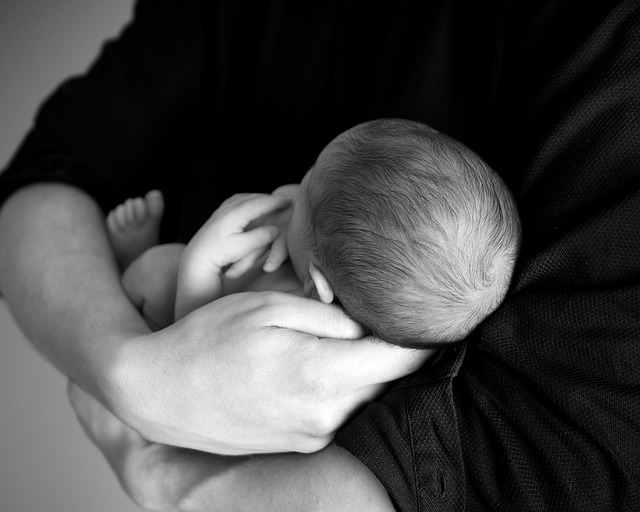Your baby’s sleep will be subject to numerous changes during his/her first year. In this article BabySpace will help you to identify the significant changes in sleep that will take place during these twelve months.
How does my baby enter sleep?
Babies in general enter sleep to your rocking, nursing or walking. This will cause the baby to feel drowsy even though he/she will not be aware of this fact. His/her eyelids will drop as he/she fall asleep in your arms.
During this time your baby will flutter her eyelids and her breathing will still be normal but her hands and legs will be flexed. He/she will also startle, yank and smile a bit. This is known as ‘sleep grins’ she will also show sucking signs. As you lay her on the bed to sleep he/she may wake up and cry which is because he/she is not completely asleep at this moment. But this will not wake her up. As the baby gradually falls asleep her/his breathing pattern becomes calmer, scowling and twitching will stop and when the baby is finally asleep his/her body will become relaxed.
What to expect during the first six weeks of the baby?
As your baby is quite small and new to the world at this age he/she will be easily distracted causing him/her to have many interruptions during sleep. This is quite unlike grownups where they are able to sleep throughout the night with minimal disturbances. Adults are naturally programmed to feel sleepy and fall asleep during the night. However this is not so in the case of the infants as they will have to be taught how to distinguish between night time and day time and also how to decrease the times they wake up when they are hungry at night.
As we already said in our previous article, newborns may sleep up to 16 hours per day and some even more or less which is normal, if it doesn’t have a significant variation. This also depends on the food the baby consumes. For example if your baby is breast fed, he or she may wake more often since the human breast milk easily digests.
At this age your newborn baby may be awake at equal amounts of time during night and day which can, also, sustain or be irregular at times. However as your baby gets adopted to his/her surroundings he or she will show/ give off cues of sleep preferences such as lights being off or on, the environment being cool or warm or even if it’s comfortable been dressed or covered.
What to expect when your baby is three months old?
Your three month old baby will sleep an average of 13 hours a day, as we always say as babies are unique, this number of hours will change from baby to baby. However there will be a considerable decrease in the hours the baby spends on sleep. You will also see that your baby has adopted a pattern of sleeping less and eating less more regularly.
It is also seen that infants at this age sleep two to three times during the day and continuous periods of being awake and taking on a habit of concentrating on other activities such as playing, observing with much interest and smiling. At this time the nights will be less exhausting as the baby will be able to nap for eight to nine hours during the night with lesser interruptions on his/her sleep.
However your baby will still wake at night for night-time feeding. Experts say that an average baby will wake up two to four times at night for this purpose.
What to expect when your baby is four to seven months old?
At this age your baby will mostly like sleep from two-three times which will be around three hours long and nine to ten hours during night time. When your baby reaches this milestone he/she will be able to sleep with less interruptions as he/she would have learned self-soothing techniques but remember that this is not so in every baby.
Another fact that the parents should remember is that at this age the baby will start teething which can be a nuisance and cause a lot of discomfort to the baby. This discomfort is likely to take place weeks or sometimes months before the tooth is actually visible. As teething is quite painful the baby will have frequent interrupted sleep during these times.
In additional your baby’s stomach capacity will grow and the digestive process will be more stronger which will cause your baby to need feeding lesser than usual during the night times however as the need and habit of being fed at night doesn’t really go away the baby will still wake up for food.
Parents or guardians should also be very cautious because during this age the baby will be much more mobile and he/she might try to put his abilities to test at night when he wakes up.
What to expect when your baby is eight to twelve months old?
This is the age that the baby will possibly develop separation anxiety. When your baby wakes up to see that you are not around, he/she will be distressed and show signs of uneasiness. Most mothers who spoke to BabySpace said that they monitor the time the baby sleeps and attend to their work during this time and then be there for the baby when he/she wakes up.
Another method you can use is to keep your baby accompanied when he/she wakes up by placing an attractive toy or a transitional object by him/her. This will comfort your baby when you fail to be around when he/she wakes up.


